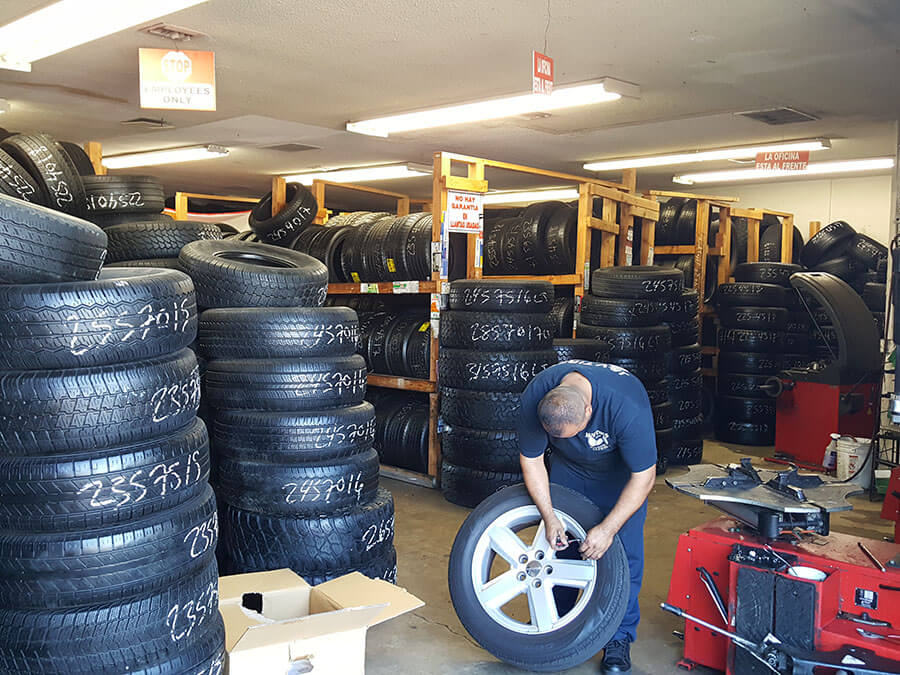Morris Tire Service: Where Accuracy and Efficiency Converge
Morris Tire Service: Where Accuracy and Efficiency Converge
Blog Article
The Environmental Advantages of Proper Tire Upkeep
Keeping proper tire treatment is commonly forgotten, yet its influence on the environment is extensive. From decreasing gas usage to lowering exhausts output, the advantages are far-reaching. Correct tire maintenance not just extends the life-span of tires but additionally decreases land fill waste and contributes to enhanced air quality. The interconnectedness of these benefits highlights the crucial function that simple maintenance techniques can play in promoting ecological sustainability.
Reduced Gas Consumption
Improving tire upkeep techniques can lead to a substantial decrease in fuel consumption for automobiles. tire shop near me. Correctly filled with air tires ensure optimal contact with the road surface area, lowering rolling resistance and improving fuel performance. According to the U.S. Department of Energy, underinflated tires can reduce gas mileage by 0.2% for every single 1 psi decrease in pressure in all four tires. This may seem like a small portion, however when multiplied by the number of automobiles when traveling, the cumulative influence is significant.
Along with tire pressure, normal tire turnings and placements likewise play a critical duty in gas effectiveness. Erratically worn tires can increase fuel consumption as the engine works harder to maintain rate and traction. By keeping appropriate positioning and turning tires at recommended intervals, drivers can ensure also put on and lengthen the life of their tires, ultimately conserving gas and decreasing their carbon footprint.
Extended Tire Lifespan
Extending the life expectancy of tires is a vital facet of effective car maintenance techniques that can produce cost financial savings and environmental benefits over time. By appropriately maintaining tires, vehicle drivers can dramatically extend their usability, lowering the frequency at which new tires require to be manufactured and old ones dealt with. This not just saves valuable sources but likewise reduces the power and discharges linked with tire production and disposal procedures.
Frequently checking tire stress, revolving tires, and making sure proper positioning are essential action in extending tire lifespan. Adequate step deepness is critical for ideal grip and safety, however it additionally contributes in for how long tires can be used before requiring substitute. Furthermore, staying clear of hostile driving behaviors that increase tire wear, such as harsh braking and doglegs, can additionally improve tire sturdiness.
Ultimately, increasing the longevity of tires through proactive upkeep not only profits the environment by lowering waste and saving sources yet likewise brings about cost savings for lorry owners by delaying the requirement for brand-new tire acquisitions.
Reduced Exhausts Result
Effective tire maintenance practices add to a decrease in emissions result, straightening with ecological his explanation sustainability goals in the automotive sector. By preserving ideal tire pressure degrees, chauffeurs can help mitigate these adverse environmental impacts.
Moreover, properly maintained tires additionally enhance traction and lower rolling resistance, additionally enhancing gas effectiveness. This, in turn, reduces the quantity of exhaust gases released right into the environment. Additionally, making certain tires are appropriately inflated and straightened can prolong the lifespan of the tires, lowering the frequency of tire substitutes and the connected ecological expenses of tire production and disposal.

Reduced Garbage Dump Waste
Offered the positive influence of appropriate tire maintenance on minimizing exhausts result, one more substantial ecological benefit is the possibility for reduced garbage dump waste. By ensuring that tires are properly pumped up, straightened, balanced, and turned routinely, their life expectancy can be significantly prolonged.

Improved Air Quality
Enhancing air high quality through correct tire upkeep techniques is an important facet of lasting ecological stewardship. When tires are underinflated, they create extra moving resistance, causing increased gas usage and greater exhausts of damaging toxins such as carbon monoxide and nitrogen oxides. Correctly inflated tires not just enhance gas performance yet More about the author additionally lower the amount of pollutants released right into the air.
Moreover, well-maintained tires with proper step deepness and alignment add to much safer driving problems, minimizing the likelihood of mishaps that can cause the release of added contaminants into the atmosphere. By extending the lifespan of tires via routine maintenance and turning, fewer tires are discarded prematurely, decreasing the environmental influence of tire disposal and production processes.
Final Thought
In verdict, proper tire upkeep uses numerous environmental advantages. It is essential for individuals to prioritize tire upkeep as a basic yet reliable method to secure the atmosphere for future generations.
Correct tire maintenance not just extends the life-span of tires however additionally lowers land fill waste and adds to boosted air high quality - discount tires morris il. By keeping correct positioning and revolving tires at suggested periods, vehicle drivers can ensure also prolong the life and wear of their tires, ultimately conserving fuel and lowering their carbon footprint
By properly preserving tires, drivers can substantially extend their usability, minimizing the frequency at which new tires need to be produced and old ones disposed of.Frequently checking tire imp source pressure, turning tires, and ensuring appropriate alignment are important actions in extending tire life expectancy. Additionally, guaranteeing tires are appropriately pumped up and lined up can extend the life-span of the tires, decreasing the regularity of tire replacements and the associated environmental expenses of tire production and disposal.
Report this page